afterLoad (455.67KB) (590μs)
afterInitialise (1.27MB) (72.55ms)
afterRoute (826.8KB) (24.66ms)
beforeRenderComponent com_tags (20.62KB) (298μs)
afterRenderComponent com_tags (1.88MB) (300ms)
afterDispatch (24.98KB) (10.95ms)
beforeRenderRawModule mod_articles_category (READ MORE...) (423.86KB) (28.45ms)
Before Access::preloadComponents (all components) (50.9KB) (424μs)
After Access::preloadComponents (all components) (103.05KB) (9.7ms)
Before Access::getAssetRules (id:8 name:com_content) (840B) (19μs)
After Access::getAssetRules (id:8 name:com_content) (7.05KB) (40μs)
afterRenderRawModule mod_articles_category (READ MORE...) (1.88KB) (258ms)
beforeRenderRawModule mod_custom (BOOST YOUR IMMUNE DEFENSE) (6.45KB) (31μs)
afterRenderRawModule mod_custom (BOOST YOUR IMMUNE DEFENSE) (3.8KB) (187μs)
beforeRenderRawModule mod_tags_popular (Search) (2.36KB) (15μs)
afterRenderRawModule mod_tags_popular (Search) (14.48KB) (328ms)
beforeRenderRawModule mod_custom (Get additionel and more detailed knowledge ) (816B) (33μs)
afterRenderRawModule mod_custom (Get additionel and more detailed knowledge ) (1.55KB) (57μs)
beforeRenderRawModule mod_custom (Overview of vitamins, minerals, and essential fatty acids) (768B) (13μs)
afterRenderRawModule mod_custom (Overview of vitamins, minerals, and essential fatty acids) (960B) (23μs)
beforeRenderRawModule mod_custom (Q10 goes by many names) (608B) (10μs)
afterRenderRawModule mod_custom (Q10 goes by many names) (928B) (20μs)
beforeRenderRawModule mod_custom (Check this before you buy a Q10 product) (752B) (9μs)
afterRenderRawModule mod_custom (Check this before you buy a Q10 product) (944B) (18μs)
beforeRenderRawModule mod_custom (Are you taking supplements) (736B) (9μs)
afterRenderRawModule mod_custom (Are you taking supplements) (1.03KB) (17μs)
beforeRenderRawModule mod_custom (Weight loss that works) (736B) (9μs)
afterRenderRawModule mod_custom (Weight loss that works) (1.03KB) (17μs)
beforeRenderRawModule mod_custom (Antiaging) (720B) (9μs)
afterRenderRawModule mod_custom (Antiaging) (912B) (17μs)
beforeRenderRawModule mod_menu (Are you getting enough vitamins and minerals?) (2.5KB) (12μs)
afterRenderRawModule mod_menu (Are you getting enough vitamins and minerals?) (22.39KB) (481μs)
beforeRenderRawModule mod_menu (The key to increased well-being) (736B) (19μs)
afterRenderRawModule mod_menu (The key to increased well-being) (17.83KB) (1.32ms)
beforeRenderRawModule mod_menu (Did you know.....) (720B) (28μs)
afterRenderRawModule mod_menu (Did you know.....) (25.52KB) (386μs)
beforeRenderRawModule mod_custom (Useful Links) (1.06KB) (17μs)
afterRenderRawModule mod_custom (Useful Links) (1.02KB) (34μs)
beforeRenderRawModule mod_custom (Chronic fatigue tied Alan to his bed but Q10 capsules saved him:) (244.28KB) (8.67ms)
afterRenderRawModule mod_custom (Chronic fatigue tied Alan to his bed but Q10 capsules saved him:) (1.06KB) (47μs)
beforeRenderModule mod_custom (Chronic fatigue tied Alan to his bed but Q10 capsules saved him:) (768B) (4μs)
afterRenderModule mod_custom (Chronic fatigue tied Alan to his bed but Q10 capsules saved him:) (1.3KB) (57μs)
beforeRenderRawModule mod_custom (Cholesterol-lowering without side effects:) (368B) (12μs)
afterRenderRawModule mod_custom (Cholesterol-lowering without side effects:) (1.06KB) (24μs)
beforeRenderModule mod_custom (Cholesterol-lowering without side effects:) (752B) (2μs)
afterRenderModule mod_custom (Cholesterol-lowering without side effects:) (1.28KB) (30μs)
beforeRenderModule mod_articles_category (READ MORE...) (20.82KB) (330μs)
afterRenderModule mod_articles_category (READ MORE...) (1.25KB) (39μs)
beforeRenderModule mod_custom (BOOST YOUR IMMUNE DEFENSE) (6.81KB) (13μs)
afterRenderModule mod_custom (BOOST YOUR IMMUNE DEFENSE) (1.28KB) (25μs)
beforeRenderModule mod_tags_popular (Search) (1.98KB) (11μs)
afterRenderModule mod_tags_popular (Search) (1.27KB) (22μs)
beforeRenderModule mod_custom (Get additionel and more detailed knowledge ) (1.17KB) (10μs)
afterRenderModule mod_custom (Get additionel and more detailed knowledge ) (1.3KB) (20μs)
beforeRenderModule mod_custom (Overview of vitamins, minerals, and essential fatty acids) (384B) (10μs)
afterRenderModule mod_custom (Overview of vitamins, minerals, and essential fatty acids) (1.31KB) (19μs)
beforeRenderModule mod_custom (Q10 goes by many names) (208B) (9μs)
afterRenderModule mod_custom (Q10 goes by many names) (1.27KB) (20μs)
beforeRenderModule mod_custom (Check this before you buy a Q10 product) (352B) (8μs)
afterRenderModule mod_custom (Check this before you buy a Q10 product) (1.28KB) (20μs)
beforeRenderModule mod_custom (Are you taking supplements) (352B) (8μs)
afterRenderModule mod_custom (Are you taking supplements) (1.28KB) (7.06ms)
beforeRenderModule mod_custom (Weight loss that works) (336B) (30μs)
afterRenderModule mod_custom (Weight loss that works) (1.27KB) (62μs)
beforeRenderModule mod_custom (Antiaging) (336B) (13μs)
afterRenderModule mod_custom (Antiaging) (3.77KB) (26μs)
beforeRenderModule mod_menu (Are you getting enough vitamins and minerals?) (2.13KB) (12μs)
afterRenderModule mod_menu (Are you getting enough vitamins and minerals?) (1.3KB) (22μs)
beforeRenderModule mod_menu (The key to increased well-being) (352B) (11μs)
afterRenderModule mod_menu (The key to increased well-being) (1.28KB) (20μs)
beforeRenderModule mod_menu (Did you know.....) (336B) (10μs)
afterRenderModule mod_menu (Did you know.....) (1.27KB) (21μs)
beforeRenderModule mod_custom (Useful Links) (1.44KB) (9μs)
afterRenderModule mod_custom (Useful Links) (1.27KB) (20μs)
beforeRenderRawModule mod_menu (Main Menu - English) (29.14KB) (5.81ms)
afterRenderRawModule mod_menu (Main Menu - English) (192.45KB) (6.45ms)
beforeRenderModule mod_menu (Main Menu - English) (720B) (6μs)
afterRenderModule mod_menu (Main Menu - English) (4.86KB) (57μs)
beforeRenderRawModule mod_languages (Sprogskift) (3.94KB) (20μs)
afterRenderRawModule mod_languages (Sprogskift) (22.63KB) (8.34ms)
beforeRenderModule mod_languages (Sprogskift) (720B) (6μs)
afterRenderModule mod_languages (Sprogskift) (5.31KB) (4.06ms)
beforeRenderRawModule mod_finder () (6.34KB) (19μs)
afterRenderRawModule mod_finder () (128.59KB) (12.19ms)
beforeRenderModule mod_finder () (704B) (6μs)
afterRenderModule mod_finder () (3.29KB) (38μs)
beforeRenderRawModule mod_custom () (6.62KB) (159μs)
afterRenderRawModule mod_custom () (22.61KB) (942μs)
beforeRenderModule mod_custom () (704B) (7μs)
afterRenderModule mod_custom () (1.23KB) (51μs)
beforeRenderRawModule mod_menu (Main Menu - English) (5.07KB) (110μs)
afterRenderRawModule mod_menu (Main Menu - English) (6.3KB) (1.82ms)
beforeRenderModule mod_menu (Main Menu - English) (720B) (6μs)
afterRenderModule mod_menu (Main Menu - English) (1.25KB) (54μs)
beforeRenderRawModule mod_languages (Sprogskift Mobil) (912B) (20μs)
afterRenderRawModule mod_languages (Sprogskift Mobil) (3.89KB) (5.79ms)
beforeRenderModule mod_languages (Sprogskift Mobil) (720B) (6μs)
afterRenderModule mod_languages (Sprogskift Mobil) (1.27KB) (36μs)
beforeRenderRawModule mod_finder () (2.3KB) (13μs)
afterRenderRawModule mod_finder () (6.29KB) (4.94ms)
beforeRenderModule mod_finder () (704B) (6μs)
afterRenderModule mod_finder () (1.23KB) (50μs)
beforeRenderRawModule mod_custom () (8.66KB) (186μs)
afterRenderRawModule mod_custom () (904B) (148μs)
beforeRenderModule mod_custom () (704B) (3μs)
afterRenderModule mod_custom () (2.43KB) (25μs)
beforeRenderRawModule mod_custom () (688B) (80μs)
afterRenderRawModule mod_custom () (896B) (95μs)
beforeRenderModule mod_custom () (704B) (2μs)
afterRenderModule mod_custom () (2.71KB) (23μs)
afterRender (407.13KB) (27.83ms)
| 1 x afterRenderRawModule mod_tags_popular (Search) (14.48KB) (28.97%) | 328.34ms |
| 1 x afterRenderComponent com_tags (1.88MB) (26.45%) | 299.79ms |
| 1 x afterRenderRawModule mod_articles_category (READ MORE...) (1.88KB) (22.75%) | 257.82ms |
| 1 x afterInitialise (1.27MB) (6.4%) | 72.55ms |
| 1 x beforeRenderRawModule mod_articles_category (READ MORE...) (423.86KB) (2.51%) | 28.45ms |
| 1 x afterRender (407.13KB) (2.46%) | 27.83ms |
| 1 x afterRoute (826.8KB) (2.18%) | 24.66ms |
| 1 x afterRenderRawModule mod_finder () (128.59KB) (1.08%) | 12.19ms |
| 1 x afterDispatch (24.98KB) (0.97%) | 10.95ms |
| 1 x After Access::preloadComponents (all components) (103.05KB) (0.86%) | 9.70ms |
| 1 x beforeRenderRawModule mod_custom (Chronic fatigue tied Alan to his bed but Q10 capsules saved him:) (244.28KB) (0.77%) | 8.67ms |
| 1 x afterRenderRawModule mod_languages (Sprogskift) (22.63KB) (0.74%) | 8.34ms |
| 1 x afterRenderModule mod_custom (Are you taking supplements) (1.28KB) (0.62%) | 7.06ms |
| 1 x afterRenderRawModule mod_menu (Main Menu - English) (192.45KB) (0.57%) | 6.45ms |
| 1 x beforeRenderRawModule mod_menu (Main Menu - English) (29.14KB) (0.51%) | 5.81ms |
| 1 x afterRenderRawModule mod_languages (Sprogskift Mobil) (3.89KB) (0.51%) | 5.79ms |
| 1 x afterRenderRawModule mod_finder () (6.29KB) (0.44%) | 4.94ms |
| 1 x afterRenderModule mod_languages (Sprogskift) (5.31KB) (0.36%) | 4.06ms |
| 1 x afterRenderRawModule mod_menu (Main Menu - English) (6.3KB) (0.16%) | 1.82ms |
| 1 x afterRenderRawModule mod_menu (The key to increased well-being) (17.83KB) (0.12%) | 1.32ms |
| 1 x afterRenderRawModule mod_custom () (22.61KB) (0.08%) | 942μs |
| 1 x afterLoad (455.67KB) (0.05%) | 590μs |
| 1 x afterRenderRawModule mod_menu (Are you getting enough vitamins and minerals?) (22.39KB) (0.04%) | 481μs |
| 1 x Before Access::preloadComponents (all components) (50.9KB) (0.04%) | 424μs |
| 1 x afterRenderRawModule mod_menu (Did you know.....) (25.52KB) (0.03%) | 386μs |
| 1 x beforeRenderModule mod_articles_category (READ MORE...) (20.82KB) (0.03%) | 330μs |
| 1 x beforeRenderComponent com_tags (20.62KB) (0.03%) | 298μs |
| 1 x afterRenderRawModule mod_custom (BOOST YOUR IMMUNE DEFENSE) (3.8KB) (0.02%) | 187μs |
| 1 x beforeRenderRawModule mod_custom () (8.66KB) (0.02%) | 186μs |
| 1 x beforeRenderRawModule mod_custom () (6.62KB) (0.01%) | 159μs |
| 1 x afterRenderRawModule mod_custom () (904B) (0.01%) | 148μs |
| 1 x beforeRenderRawModule mod_menu (Main Menu - English) (5.07KB) (0.01%) | 110μs |
| 1 x afterRenderRawModule mod_custom () (896B) (0.01%) | 95μs |
| 1 x beforeRenderRawModule mod_custom () (688B) (0.01%) | 80μs |
| 1 x afterRenderModule mod_custom (Weight loss that works) (1.27KB) (0.01%) | 62μs |
| 1 x afterRenderRawModule mod_custom (Get additionel and more detailed knowledge ) (1.55KB) (0.01%) | 57μs |
| 1 x afterRenderModule mod_custom (Chronic fatigue tied Alan to his bed but Q10 capsules saved him:) (1.3KB) (0.01%) | 57μs |
| 1 x afterRenderModule mod_menu (Main Menu - English) (4.86KB) (0.01%) | 57μs |
| 1 x afterRenderModule mod_menu (Main Menu - English) (1.25KB) (0%) | 54μs |
| 1 x afterRenderModule mod_custom () (1.23KB) (0%) | 51μs |
| 1 x afterRenderModule mod_finder () (1.23KB) (0%) | 50μs |
| 1 x afterRenderRawModule mod_custom (Chronic fatigue tied Alan to his bed but Q10 capsules saved him:) (1.06KB) (0%) | 47μs |
| 1 x After Access::getAssetRules (id:8 name:com_content) (7.05KB) (0%) | 40μs |
| 1 x afterRenderModule mod_articles_category (READ MORE...) (1.25KB) (0%) | 39μs |
| 1 x afterRenderModule mod_finder () (3.29KB) (0%) | 38μs |
| 1 x afterRenderModule mod_languages (Sprogskift Mobil) (1.27KB) (0%) | 36μs |
| 1 x afterRenderRawModule mod_custom (Useful Links) (1.02KB) (0%) | 34μs |
| 1 x beforeRenderRawModule mod_custom (Get additionel and more detailed knowledge ) (816B) (0%) | 33μs |
| 1 x beforeRenderRawModule mod_custom (BOOST YOUR IMMUNE DEFENSE) (6.45KB) (0%) | 31μs |
| 1 x afterRenderModule mod_custom (Cholesterol-lowering without side effects:) (1.28KB) (0%) | 30μs |
| 1 x beforeRenderModule mod_custom (Weight loss that works) (336B) (0%) | 30μs |
| 1 x beforeRenderRawModule mod_menu (Did you know.....) (720B) (0%) | 28μs |
| 1 x afterRenderModule mod_custom (Antiaging) (3.77KB) (0%) | 26μs |
| 1 x afterRenderModule mod_custom (BOOST YOUR IMMUNE DEFENSE) (1.28KB) (0%) | 25μs |
| 1 x afterRenderModule mod_custom () (2.43KB) (0%) | 25μs |
| 1 x afterRenderRawModule mod_custom (Cholesterol-lowering without side effects:) (1.06KB) (0%) | 24μs |
| 1 x afterRenderRawModule mod_custom (Overview of vitamins, minerals, and essential fatty acids) (960B) (0%) | 23μs |
| 1 x afterRenderModule mod_custom () (2.71KB) (0%) | 23μs |
| 1 x afterRenderModule mod_tags_popular (Search) (1.27KB) (0%) | 22μs |
| 1 x afterRenderModule mod_menu (Are you getting enough vitamins and minerals?) (1.3KB) (0%) | 22μs |
| 1 x afterRenderModule mod_menu (Did you know.....) (1.27KB) (0%) | 21μs |
| 1 x afterRenderRawModule mod_custom (Q10 goes by many names) (928B) (0%) | 20μs |
| 1 x afterRenderModule mod_custom (Get additionel and more detailed knowledge ) (1.3KB) (0%) | 20μs |
| 1 x afterRenderModule mod_custom (Q10 goes by many names) (1.27KB) (0%) | 20μs |
| 1 x afterRenderModule mod_custom (Check this before you buy a Q10 product) (1.28KB) (0%) | 20μs |
| 1 x afterRenderModule mod_menu (The key to increased well-being) (1.28KB) (0%) | 20μs |
| 1 x afterRenderModule mod_custom (Useful Links) (1.27KB) (0%) | 20μs |
| 1 x beforeRenderRawModule mod_languages (Sprogskift) (3.94KB) (0%) | 20μs |
| 1 x beforeRenderRawModule mod_languages (Sprogskift Mobil) (912B) (0%) | 20μs |
| 1 x Before Access::getAssetRules (id:8 name:com_content) (840B) (0%) | 19μs |
| 1 x beforeRenderRawModule mod_menu (The key to increased well-being) (736B) (0%) | 19μs |
| 1 x afterRenderModule mod_custom (Overview of vitamins, minerals, and essential fatty acids) (1.31KB) (0%) | 19μs |
| 1 x beforeRenderRawModule mod_finder () (6.34KB) (0%) | 19μs |
| 1 x afterRenderRawModule mod_custom (Check this before you buy a Q10 product) (944B) (0%) | 18μs |
| 1 x afterRenderRawModule mod_custom (Are you taking supplements) (1.03KB) (0%) | 17μs |
| 1 x afterRenderRawModule mod_custom (Weight loss that works) (1.03KB) (0%) | 17μs |
| 1 x afterRenderRawModule mod_custom (Antiaging) (912B) (0%) | 17μs |
| 1 x beforeRenderRawModule mod_custom (Useful Links) (1.06KB) (0%) | 17μs |
| 1 x beforeRenderRawModule mod_tags_popular (Search) (2.36KB) (0%) | 15μs |
| 1 x beforeRenderRawModule mod_custom (Overview of vitamins, minerals, and essential fatty acids) (768B) (0%) | 13μs |
| 1 x beforeRenderModule mod_custom (BOOST YOUR IMMUNE DEFENSE) (6.81KB) (0%) | 13μs |
| 1 x beforeRenderModule mod_custom (Antiaging) (336B) (0%) | 13μs |
| 1 x beforeRenderRawModule mod_finder () (2.3KB) (0%) | 13μs |
| 1 x beforeRenderModule mod_menu (Are you getting enough vitamins and minerals?) (2.13KB) (0%) | 12μs |
| 1 x beforeRenderRawModule mod_menu (Are you getting enough vitamins and minerals?) (2.5KB) (0%) | 12μs |
| 1 x beforeRenderRawModule mod_custom (Cholesterol-lowering without side effects:) (368B) (0%) | 12μs |
| 2 x beforeRenderModule mod_menu (Main Menu - English) (720B) (0%) | 12μs |
| 2 x beforeRenderModule mod_finder () (704B) (0%) | 12μs |
| 3 x beforeRenderModule mod_custom () (704B) (0%) | 12μs |
| 1 x beforeRenderModule mod_tags_popular (Search) (1.98KB) (0%) | 11μs |
| 1 x beforeRenderModule mod_menu (The key to increased well-being) (352B) (0%) | 11μs |
| 1 x beforeRenderRawModule mod_custom (Q10 goes by many names) (608B) (0%) | 10μs |
| 1 x beforeRenderModule mod_custom (Overview of vitamins, minerals, and essential fatty acids) (384B) (0%) | 10μs |
| 1 x beforeRenderModule mod_menu (Did you know.....) (336B) (0%) | 10μs |
| 1 x beforeRenderModule mod_custom (Get additionel and more detailed knowledge ) (1.17KB) (0%) | 10μs |
| 1 x beforeRenderRawModule mod_custom (Are you taking supplements) (736B) (0%) | 9μs |
| 1 x beforeRenderRawModule mod_custom (Weight loss that works) (736B) (0%) | 9μs |
| 1 x beforeRenderRawModule mod_custom (Antiaging) (720B) (0%) | 9μs |
| 1 x beforeRenderModule mod_custom (Q10 goes by many names) (208B) (0%) | 9μs |
| 1 x beforeRenderModule mod_custom (Useful Links) (1.44KB) (0%) | 9μs |
| 1 x beforeRenderRawModule mod_custom (Check this before you buy a Q10 product) (752B) (0%) | 9μs |
| 1 x beforeRenderModule mod_custom (Are you taking supplements) (352B) (0%) | 8μs |
| 1 x beforeRenderModule mod_custom (Check this before you buy a Q10 product) (352B) (0%) | 8μs |
| 1 x beforeRenderModule mod_languages (Sprogskift) (720B) (0%) | 6μs |
| 1 x beforeRenderModule mod_languages (Sprogskift Mobil) (720B) (0%) | 6μs |
| 1 x beforeRenderModule mod_custom (Chronic fatigue tied Alan to his bed but Q10 capsules saved him:) (768B) (0%) | 4μs |
| 1 x beforeRenderModule mod_custom (Cholesterol-lowering without side effects:) (752B) (0%) | 2μs |
 Chromium plays a role in insulin sensitivity and stable blood sugar levels. Multiple studies even suggest that chromium supplementation can counteract insulin resistance, thereby lowering the risk of type 2 diabetes and its precursor, metabolic syndrome, which is linked to cardiovascular disease. This was described in a review article published in Heliyon. Here, the authors address chromium’s molecular mechanisms and the role of chromium supplements in cardiovascular disease. It is important to choose chromium in the form of chromium yeast because it has superior absorption. What is also needed to maintain stable blood sugar levels and healthy circulation is a sufficient supply of protein, healthy fats, and limited carbohydrate intake.
Chromium plays a role in insulin sensitivity and stable blood sugar levels. Multiple studies even suggest that chromium supplementation can counteract insulin resistance, thereby lowering the risk of type 2 diabetes and its precursor, metabolic syndrome, which is linked to cardiovascular disease. This was described in a review article published in Heliyon. Here, the authors address chromium’s molecular mechanisms and the role of chromium supplements in cardiovascular disease. It is important to choose chromium in the form of chromium yeast because it has superior absorption. What is also needed to maintain stable blood sugar levels and healthy circulation is a sufficient supply of protein, healthy fats, and limited carbohydrate intake.







 Inflammation appears to be a key factor in the majority of chronic illnesses such as e.g. rheumatism, type-2 diabetes, and cancer. Science has primarily focused on EPA (eicosapentaenoic acid), but new research points to supplementation with DHA (docosahexaenoic acid) as being even more effective in healthy patients with too much abdominal fat and subclinical systemic inflammation.
Inflammation appears to be a key factor in the majority of chronic illnesses such as e.g. rheumatism, type-2 diabetes, and cancer. Science has primarily focused on EPA (eicosapentaenoic acid), but new research points to supplementation with DHA (docosahexaenoic acid) as being even more effective in healthy patients with too much abdominal fat and subclinical systemic inflammation.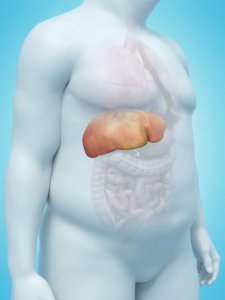 It has been known for a long time that a lack of
It has been known for a long time that a lack of 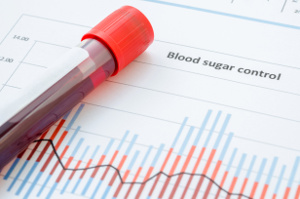
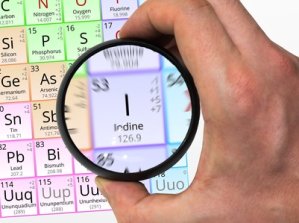 It appears so. Iodine is an essential trace element that is vital for metabolism and estrogen balance. Iodine also helps the body get rid of environmental toxins. In fact, exposure to these toxins increases our need for iodine, and many experts believe that the official recommendations for iodine are too low.
It appears so. Iodine is an essential trace element that is vital for metabolism and estrogen balance. Iodine also helps the body get rid of environmental toxins. In fact, exposure to these toxins increases our need for iodine, and many experts believe that the official recommendations for iodine are too low.
 Coronary occlusion is the leading cause of death worldwide. Type 2 diabetes is spreading like a bushfire and this disease is characterized by atherosclerosis and early death. Diet and lifestyle are of vital importance and the same goes for
Coronary occlusion is the leading cause of death worldwide. Type 2 diabetes is spreading like a bushfire and this disease is characterized by atherosclerosis and early death. Diet and lifestyle are of vital importance and the same goes for 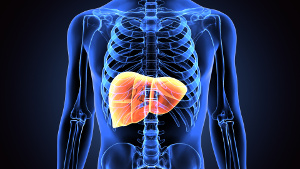 Non-alcoholic fatty liver disease (NAFLD) is a liver disease that is spreading like a bushfire. NAFLD is associated with obesity and metabolic syndrome, which is an early stage of type 2 diabetes. What you eat plays a major role, and a large Chinese study has actually demonstrated that higher dietary intake of
Non-alcoholic fatty liver disease (NAFLD) is a liver disease that is spreading like a bushfire. NAFLD is associated with obesity and metabolic syndrome, which is an early stage of type 2 diabetes. What you eat plays a major role, and a large Chinese study has actually demonstrated that higher dietary intake of 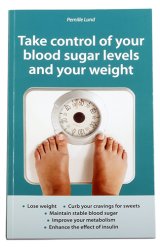
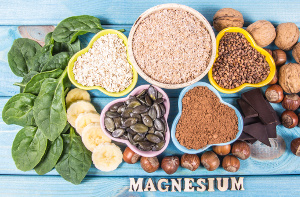 Diabetes and its precursor, metabolic syndrome, are characterized by insulin resistance and overweight. According to a Chinese study that is published in Frontiers in Nutrition, increased intake of
Diabetes and its precursor, metabolic syndrome, are characterized by insulin resistance and overweight. According to a Chinese study that is published in Frontiers in Nutrition, increased intake of 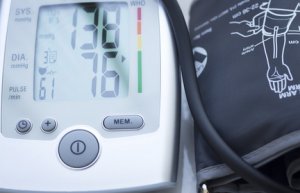 There is widespread potassium deficiency, and it is common knowledge that an increased
There is widespread potassium deficiency, and it is common knowledge that an increased  Ageing is linked to uncontrolled, low-grade inflammation, also known as inflammaging, according to articles published in the journals Nature Medicine and Ageing and Disease. Although chronic inflammation is not felt directly it may set the stage for cardiovascular disease, rheumatism, Alzheimer’s disease, and cancer. Chronic inflammation may also cause virus infections like influenza and COVID-19 to become life-threatening because the immune defense suddenly overreacts and attacks healthy tissue. It is therefore vital for ageing people to protect themselves against chronic inflammation, which means getting plenty of vitamin D, selenium, coenzyme Q10, zinc, omega-3, and melatonin. These are all things that many older people often lack.
Ageing is linked to uncontrolled, low-grade inflammation, also known as inflammaging, according to articles published in the journals Nature Medicine and Ageing and Disease. Although chronic inflammation is not felt directly it may set the stage for cardiovascular disease, rheumatism, Alzheimer’s disease, and cancer. Chronic inflammation may also cause virus infections like influenza and COVID-19 to become life-threatening because the immune defense suddenly overreacts and attacks healthy tissue. It is therefore vital for ageing people to protect themselves against chronic inflammation, which means getting plenty of vitamin D, selenium, coenzyme Q10, zinc, omega-3, and melatonin. These are all things that many older people often lack. Women from the age of 50 years and older have an increased risk of blood sugar problems, weight problems, cardiovascular disease, and metabolic syndrome, if they lack
Women from the age of 50 years and older have an increased risk of blood sugar problems, weight problems, cardiovascular disease, and metabolic syndrome, if they lack  Millions of people who are overweight suffer from blood sugar imbalances and metabolic syndrome – often without being aware of it. A study shows that people with metabolic syndrome are severely vitamin E-deficient. This poses a serious threat to their health, as
Millions of people who are overweight suffer from blood sugar imbalances and metabolic syndrome – often without being aware of it. A study shows that people with metabolic syndrome are severely vitamin E-deficient. This poses a serious threat to their health, as  Diabetes is spreading with epidemic proportions, and an alarmingly high number of people are affected by metabolic syndrome, an early stage of diabetes that causes insulin resistance, elevated cholesterol, hypertension, and enlarged waist circumference. Ever since the 1970s, diabetics have been advised to stick with a low-fat diet consisting of bread, potatoes, and other carbohydrate sources. However, a new Danish study reveals that it is best to cut back on your carbohydrate intake. The new message to diabetics supports research from other parts of the world. Diabetics and people with sensitive blood sugar should focus on eating a diet with fewer carbohydrates, more protein, and more healthy fats. They should also make sure to get enough chromium, vitamin D, and magnesium, all of which are nutrients that support the body’s blood sugar levels. Furthermore, vitamin B12 and Q10 are important for those, who take diabetes medication and cholesterol-lowering drugs (statins).
Diabetes is spreading with epidemic proportions, and an alarmingly high number of people are affected by metabolic syndrome, an early stage of diabetes that causes insulin resistance, elevated cholesterol, hypertension, and enlarged waist circumference. Ever since the 1970s, diabetics have been advised to stick with a low-fat diet consisting of bread, potatoes, and other carbohydrate sources. However, a new Danish study reveals that it is best to cut back on your carbohydrate intake. The new message to diabetics supports research from other parts of the world. Diabetics and people with sensitive blood sugar should focus on eating a diet with fewer carbohydrates, more protein, and more healthy fats. They should also make sure to get enough chromium, vitamin D, and magnesium, all of which are nutrients that support the body’s blood sugar levels. Furthermore, vitamin B12 and Q10 are important for those, who take diabetes medication and cholesterol-lowering drugs (statins). Overweight people often suffer from prediabetes, also known as metabolic syndrome, which is a condition characterized by blood sugar disturbances and cravings that make it difficult to maintain stable body weight. In addition, many people with this condition have low levels of
Overweight people often suffer from prediabetes, also known as metabolic syndrome, which is a condition characterized by blood sugar disturbances and cravings that make it difficult to maintain stable body weight. In addition, many people with this condition have low levels of 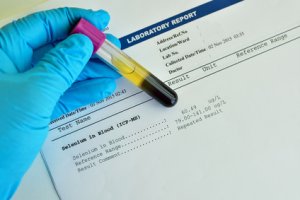 We all get exposed to mercury, a neurotoxin that is found to a great extent in nature and in our environment. According to an EU report, mercury is a large economic burden to society because of the costs related to lowered IQ levels. For that reason alone, we should aim to limit our exposure to mercury and also take a closer look at how selenium protects against the harmful heavy metal – provided our selenium levels are adequately high.
We all get exposed to mercury, a neurotoxin that is found to a great extent in nature and in our environment. According to an EU report, mercury is a large economic burden to society because of the costs related to lowered IQ levels. For that reason alone, we should aim to limit our exposure to mercury and also take a closer look at how selenium protects against the harmful heavy metal – provided our selenium levels are adequately high. A substantial number of people suffer from Hashimoto’s disease, a condition that causes hypothyroidism (slow metabolism), extreme fatigue, cold sensitivity, weight gain, and numerous other symptoms because the cells lack energy. Quite a few people suffering from this disease receive treatment, but the results are often unsatisfactory, and most people have not been given the correct diagnosis or do not receive proper help.
A substantial number of people suffer from Hashimoto’s disease, a condition that causes hypothyroidism (slow metabolism), extreme fatigue, cold sensitivity, weight gain, and numerous other symptoms because the cells lack energy. Quite a few people suffering from this disease receive treatment, but the results are often unsatisfactory, and most people have not been given the correct diagnosis or do not receive proper help.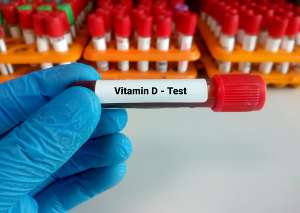 Many people unwittingly suffer from a disease called non-alcoholic fatty liver disease, which is related to overweight and diabetes. The diet plays a major role, and a Chinese study shows that
Many people unwittingly suffer from a disease called non-alcoholic fatty liver disease, which is related to overweight and diabetes. The diet plays a major role, and a Chinese study shows that  The number of Danes suffering from one or several chronic diseases is a lot higher than previously thought, according to a group of scientists behind a new study from Danish Center for Healthcare Improvement at Aalborg University. Diseases such as hypertension, elevated cholesterol, depression, bronchitis, asthma, type 2 diabetes, rheumatism, and osteoporosis are among the most widespread ailments. Although there may be a reason of underlying factors, diet and lack of essential nutrients often play a key role. This is something that we have written about over the years on this website, and we have tried to gather some facts from various articles. Simple diet changes and the use of relevant nutritional supplements may play a key role in the treatment of these chronic ailments that come at a huge price, both to the individual sufferer and to society.
The number of Danes suffering from one or several chronic diseases is a lot higher than previously thought, according to a group of scientists behind a new study from Danish Center for Healthcare Improvement at Aalborg University. Diseases such as hypertension, elevated cholesterol, depression, bronchitis, asthma, type 2 diabetes, rheumatism, and osteoporosis are among the most widespread ailments. Although there may be a reason of underlying factors, diet and lack of essential nutrients often play a key role. This is something that we have written about over the years on this website, and we have tried to gather some facts from various articles. Simple diet changes and the use of relevant nutritional supplements may play a key role in the treatment of these chronic ailments that come at a huge price, both to the individual sufferer and to society. Lack of
Lack of 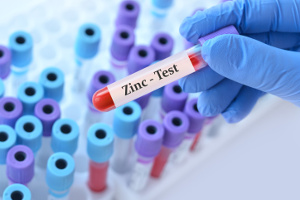
 "After about one week of taking the Q10 supplement I could feel a huge difference," says 23-year old Alan Piccini, who has been suffering from extreme fatigue and muscle aches ever since he was a child.
"After about one week of taking the Q10 supplement I could feel a huge difference," says 23-year old Alan Piccini, who has been suffering from extreme fatigue and muscle aches ever since he was a child. “Taking capsules with co-enzyme Q10 has freed me of the severe side effects of my cholesterol lowering medicine,” Mrs Franken explains.
“Taking capsules with co-enzyme Q10 has freed me of the severe side effects of my cholesterol lowering medicine,” Mrs Franken explains.